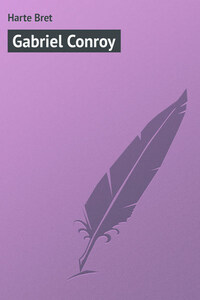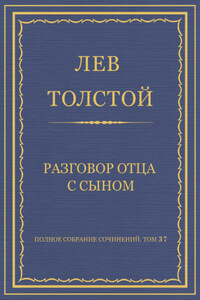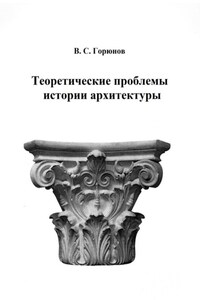Snow. Everywhere. As far as the eye could reach – fifty miles, looking southward from the highest white peak, – filling ravines and gulches, and dropping from the walls of cañons in white shroud-like drifts, fashioning the dividing ridge into the likeness of a monstrous grave, hiding the bases of giant pines, and completely covering young trees and larches, rimming with porcelain the bowl-like edges of still, cold lakes, and undulating in motionless white billows to the edge of the distant horizon. Snow lying everywhere over the California Sierras on the 15th day of March 1848, and still falling.
It had been snowing for ten days: snowing in finely granulated powder, in damp, spongy flakes, in thin, feathery plumes, snowing from a leaden sky steadily, snowing fiercely, shaken out of purple-black clouds in white flocculent masses, or dropping in long level lines, like white lances from the tumbled and broken heavens. But always silently! The woods were so choked with it – the branches were so laden with it – it had so permeated, filled and possessed earth and sky; it had so cushioned and muffled the ringing rocks and echoing hills, that all sound was deadened. The strongest gust, the fiercest blast, awoke no sigh or complaint from the snow-packed, rigid files of forest. There was no cracking of bough nor crackle of underbrush; the overladen branches of pine and fir yielded and gave way without a sound. The silence was vast, measureless, complete! Nor could it be said that any outward sign of life or motion changed the fixed outlines of this stricken landscape. Above, there was no play of light and shadow, only the occasional deepening of storm or night. Below, no bird winged its flight across the white expanse, no beast haunted the confines of the black woods; whatever of brute nature might have once inhabited these solitudes had long since flown to the lowlands.
There was no track or imprint; whatever foot might have left its mark upon this waste, each succeeding snow-fall obliterated all trace or record. Every morning the solitude was virgin and unbroken; a million tiny feet had stepped into the track and filled it up. And yet, in the centre of this desolation, in the very stronghold of this grim fortress, there was the mark of human toil. A few trees had been felled at the entrance of the cañon, and the freshly-cut chips were but lightly covered with snow. They served, perhaps, to indicate another tree "blazed" with an axe, and bearing a rudely-shaped wooden effigy of a human hand, pointing to the cañon. Below the hand was a square strip of canvas, securely nailed against the bark, and bearing the following inscription —
"NOTICE
Captain Conroy's party of emigrants are lost in the snow, and camped up in this cañon. Out of provisions and starving!
Left St. Jo, October 8th, 1847.
Left Salt Lake, January 1st, 1848.
Arrived here, March 1st, 1848.
Lost half our stock on the Platte.
Abandoned our waggons, February 20th.
HELP!
Our names are:
Joel McCormick, Jane Brackett,
Peter Dumphy, Gabriel Conroy,
Paul Devarges, John Walker,
Grace Conroy, Henry March,
Olympia Conroy, Philip Ashley,
Mary Dumphy.
(Then in smaller letters, in pencil:)
Mamie died, November 8th, Sweetwater.
Minnie died, December 1st, Echo Cañon.
Jane died, January 2nd, Salt Lake.
James Brackett lost, February 3rd.
HELP!"
The language of suffering is not apt to be artistic or studied, but I think that rhetoric could not improve this actual record. So I let it stand, even as it stood this 15th day of March 1848, half-hidden by a thin film of damp snow, the snow-whitened hand stiffened and pointing rigidly to the fateful cañon like the finger of Death.
At noon there was a lull in the storm, and a slight brightening of the sky toward the east. The grim outlines of the distant hills returned, and the starved white flank of the mountain began to glisten. Across its gaunt hollow some black object was moving – moving slowly and laboriously; moving with such an uncertain mode of progression, that at first it was difficult to detect whether it was brute or human – sometimes on all fours, sometimes erect, again hurrying forward like a drunken man, but always with a certain definiteness of purpose, towards the cañon. As it approached nearer you saw that it was a man – a haggard man, ragged and enveloped in a tattered buffalo robe, but still a man, and a determined one. A young man despite his bent figure and wasted limbs – a young man despite the premature furrows that care and anxiety had set upon his brow and in the corners of his rigid mouth – a young man notwithstanding the expression of savage misanthropy with which suffering and famine had overlaid the frank impulsiveness of youth. When he reached the tree at the entrance of the cañon, he brushed the film of snow from the canvas placard, and then leaned for a few moments exhaustedly against its trunk. There was something in the abandonment of his attitude that indicated even more pathetically than his face and figure his utter prostration – a prostration quite inconsistent with any visible cause. When he had rested himself, he again started forward with a nervous intensity, shambling, shuffling, falling, stooping to replace the rudely extemporised snow-shoes of fir bark that frequently slipped from his feet, but always starting on again with the feverishness of one who doubted even the sustaining power of his will.








